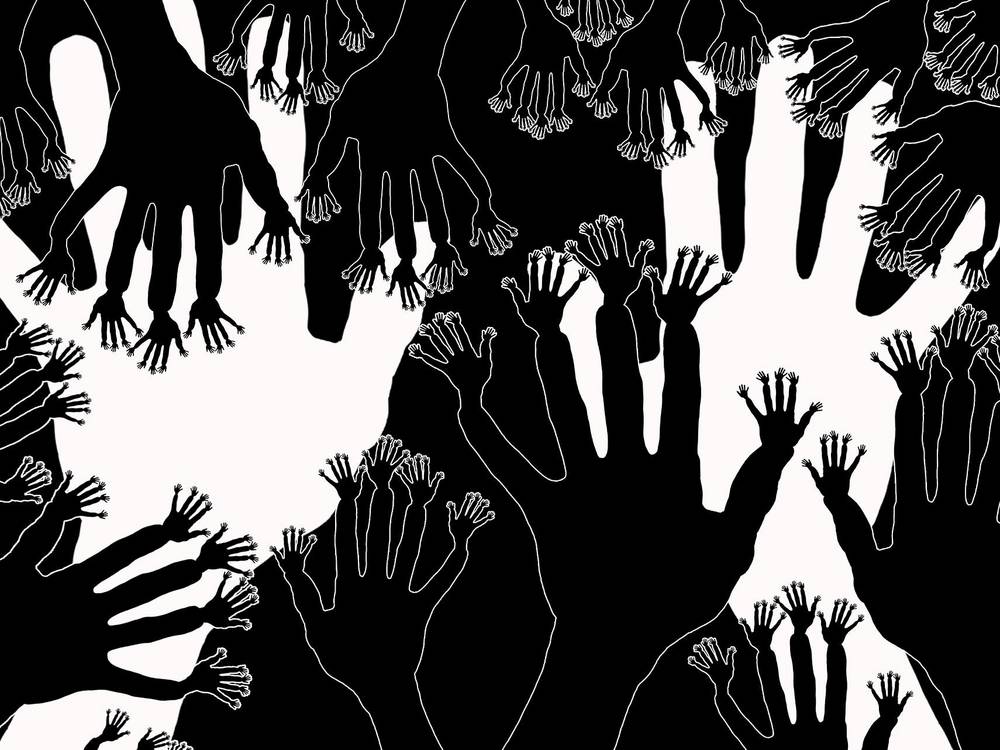One of the centres for social work turned to the Human Rights Ombudsman of the Republic of Slovenia (Ombudsman) with the warning that children and adolescents do not have appropriate access to psychosocial and psychiatric treatment. Centres for social work and educational institutions thus supposedly become an extended arm of healthcare, even though they are facing a staffing crisis themselves. Parents are supposedly also dealing with the growing up-bringing crisis. The Ombudsman turned to the Ministry of Health (MZ), Ministry of Education (MVI), and Ministry of Labour, Family, Social affairs and Equal Opportunities (MDDSZ) with an inquiry in which he called on these bodies to state their views in regard to the statements of the complainant and inform him of activities in the field of protection of mental health of children and adolescents. Based on the answers received, the Ombudsman estimates that these bodies are aware that mental health of children and adolescents is an issue that does not only pertain to healthcare but that recognising, preventing, and solving problems in mental health is the task of the whole of society. We could not overlook that the waiting period for the first examination at a psychiatrist for children and adolescents for all urgency levels with the exception of “urgent” currently significantly exceeds the time of the longest waiting periods, which is why also in the opinion of the MZ, children and adolescents do not have access to quality treatment of a mental disorder when they need it. Considering the above-stated, we took a position that the described situation presents a violation of Article 5 of the Patients’ Rights Act (ZPacP) in connection with Article 11 of the ZPacP and Article 51 of the Constitution of the Republic of Slovenia. The Ombudsman will continue to monitor the discussed issue in the future.
***
One of the centres for social work turned to the Ombudsman with the warning that children and adolescents do not have appropriate access to psychosocial and psychiatric treatment. Centres for social work and educational institutions thus supposedly become an extended arm of healthcare, even though they are facing a staffing crisis themselves. The number of runaways from open-type educational institutions has supposedly increased, children and adolescents are said to be using illegal drugs more often, and parents are also said to be faced with ever-increasing distress of up-bringing. The Ombudsman turned to the MZ, MVI, and MDDSZ with an inquiry in which he called on these bodies to state their views in regards to the statements of the complainant and inform him of activities in the field of protecting mental health of children and adolescents.
The MZ explained that data from the National Institute of Public Health (NIJZ) on average waiting periods show that in 2021–2022 compared to 2018–2020 there was an 85% increase in issued referrals marked “urgent”, “very fast”, and “fast”. The number of those waiting (at any given time) exceeds 600 children and adolescents. The average waiting period for the first examination by a psychiatrist for children and adolescents marked “very fast” is 150 days, for “fast” 230 days, and for “regular” 270 days. The MZ could not provide us with an estimate about the supposed overcrowding of the secure ward and the data about waiting periods for the hospital activities, since the NIJZ does not collect these data. The urgent psychiatric treatment of children and adolescents supposedly does not meet its purpose since after diagnosis a child or adolescent does not have quality and appropriate treatment of the mental disorder available in the network of mental health services providers. The MZ ascribed the reason for long waiting periods to the fact that the mental health service providers network on the primary healthcare level is not full, while at the same time facing an increase in needs for children and adolescents’ mental health services due to the Covid-19 epidemic.
The MZ emphasised that, in accordance with the Resolution on the National Mental Health Programme 2018–2028 and the Action Plan for 2022–2023, which was prepared in cooperation with several competent ministries, it is actively working to supplement the network of providers and increase the number of appropriately qualified staff. Many studies show that with appropriate treatment of children and adolescents, a more difficult course of mental health problems in later life can be prevented. With the General Agreement for 2023, five additional teams should be established in the Centres for Mental Health of Children and Adolescents (CZDOM). Funding was also provided for the employment of an additional psychologist in all three outpatient clinics for the priority treatment of children and adolescents with mental health problems. The Act Determining Additional Measures to Prevent the Spread of COVID-19 and to Mitigate, Control, Ensure Recovery from and Eliminate Its Impact (ZNUNBZ) provides for the financing of an additional 70 specialisations of clinical psychology. The Association for Child and Adolescent Psychiatry also prepared a proposal to amend the child psychiatry specialisation programme, according to which child psychiatry specialists would be able to rotate in a CZDOM for a few months. On 15/03/2023, the MZ sent a letter to the specialist child and adolescent psychiatry clinics stating that they are obliged to provide 20% of the capacity each week for the treatment of children and adolescents who are referred to them with a defined level of urgency of "very fast". Expansion of the network and improvement of accessibility (mainly outside hospitals) should be gradually achieved over the next 5–6 years.
In its reply to the Ombudsman, the MVI explained that an analysis of the situation in the field of mental health support in kindergartens, schools, and universities is carried out through the action plan. Namely, within the implementation of the latter, programmes are being introduced to reduce peer violence and non-chemical addiction. In order to reduce anxiety, a targeted research project is being planned, which is aimed at analysing educational systems at the primary and secondary level from the point of view of mental health, reviewing the contents of educational curricula in primary, secondary, and university education, and identifying gaps and proposals for measures. On the basis of the Decision on Urgent Staff Measures, schools are also enabled to hire additional consultants. Nevertheless, on 21/12/2022, 24 school counsellor positions were unoccupied. The MVI does not have information on whether the reason for this is the fact that the number of school counsellors is adequate or whether the schools are also facing a lack of staff. However, the Institute of Education of the Republic of Slovenia will soon revise the Programme Guidelines of the Counselling Service. In relation to the allegedly increased number of runaways from open-type educational institutions, the MVI explained that the data at their disposal shows only a minimal increase in 2022 compared to 2021 (1%). In November 2022, a cooperation protocol was also adopted between the expert centre for the education of children and adolescents with emotional and behavioural problems and disorders and the CDZOM. The MVI supposedly grants additional staff to expert centres if they request it.
When asked by the Ombudsman about the offer and development of free programmes to strengthen parental care, the MDDSZ explained that they have been financing family support programmes for many years. The Resolution on the National Social Security Programme for the period 2022–2030 (ReNPSV22-30) foresees an additional increase in the number of these programmes. In relation to the alleged understaffing of social work centres, the MDDSZ explained that between 2017 and 2022, 340 new jobs were provided to social work centres, and new jobs at social work centres are also planned within the framework of the European Cohesion Policy 2021–2027.
Based on the answers received, the Ombudsman estimates that these bodies are aware that mental health of children and adolescents is an issue that does not only pertain to healthcare but that recognising, preventing, and solving problems in mental health is the task of the whole of society. We also understand that the problems with the lack of staff require certain measures, the results of which will show over time. Regardless of the above, the Ombudsman could not overlook the fact that the MZ simply admits that children and adolescents in the mental health service providers network do not have access to quality and appropriate treatment of mental disorders; the average waiting time for the first examination by a psychiatrist for children and adolescents for all levels of urgency, with the exception of the "urgent" level, significantly exceed the longest waiting times. The ZZVZZ does provide for the possibility of medical treatment outside the place of permanent residence of the child or adolescent (including abroad), but the Ombudsman estimates that this type of psychiatric treatment is contrary to modern psychiatric guidelines, which emphasise the importance of psychiatric treatment in the community and also include the help of social services and educational institutions. According to the Ombudsman, the situation described thus represents a violation of Article 5 of the ZPacP in conjunction with Article 11 of the ZPacP, which stipulates that the patient has the right to quality, safe, and appropriate medical care, and concretises the content of Article 51 of the Constitution of the Republic of Slovenia, which guarantees an individual the right to healthcare under the conditions stipulated by law. The Ombudsman will continue to monitor the situation carefully in the future. In doing so, we will particularly closely monitor the effectiveness of the measures taken or planned to be taken by the competent ministries. 9.4-50/2022

